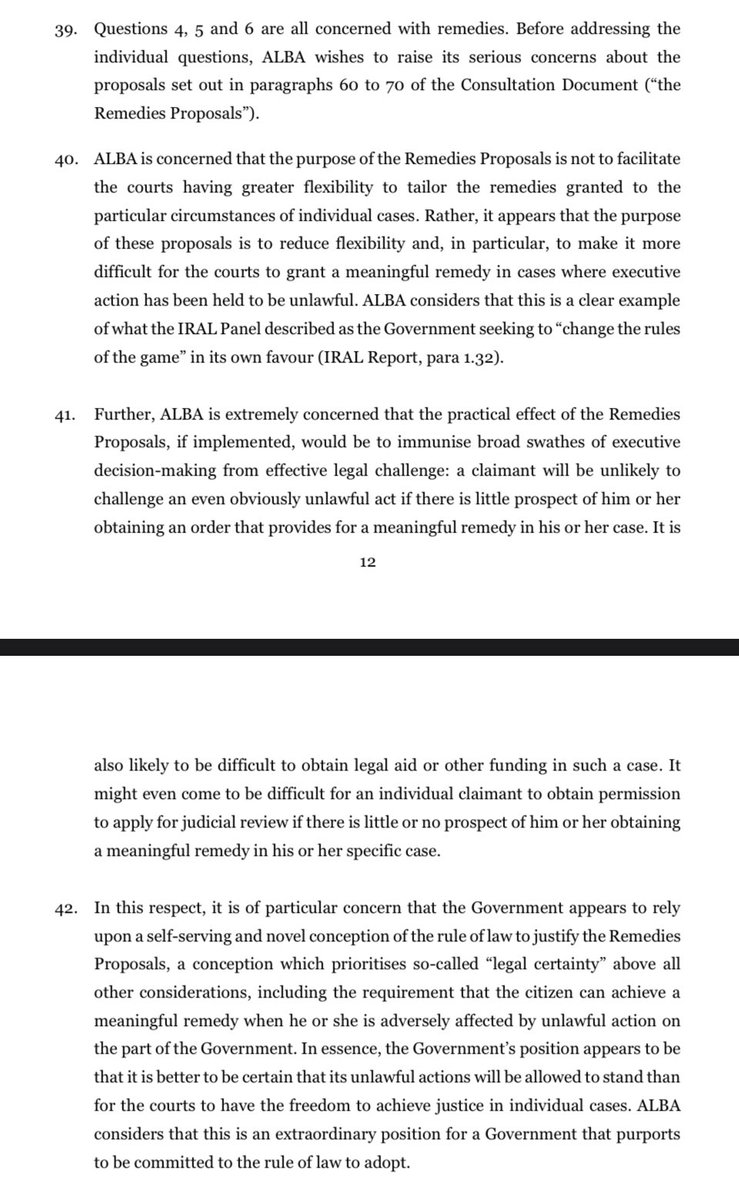Worth reading this response by the Administrative Law Bar Association to the current government’s latest consultation on “reform” to judicial review. adminlaw.org.uk/wp-content/upl…
(Disclosure: I had a very minor hand in it - but not in any of the paragraphs I’m going to quote.)
Opening salvo. The current government’s description of the findings of the independent review is simply false, in critical respects. 



Why there should be no presumption against annulment of statutory instruments found to be in excess of Ministers’ powers: the Parliamentary veneer on them fails to conceal that they are exercises of executive power with no real Parliamentary scrutiny. 



On muddled proposals on ouster clauses (muddled but generally tending towards making it easier to defend them.) 

(“Ouster clauses” are provisions that try to restrict judicial review of certain decisions.)
(I enjoyed “specific and limited”.)
But there’s plenty more here: a comprehensive demolition of a set of proposals that managed, in critical respects, to be simultaneously incoherent and sinister.
• • •
Missing some Tweet in this thread? You can try to
force a refresh











